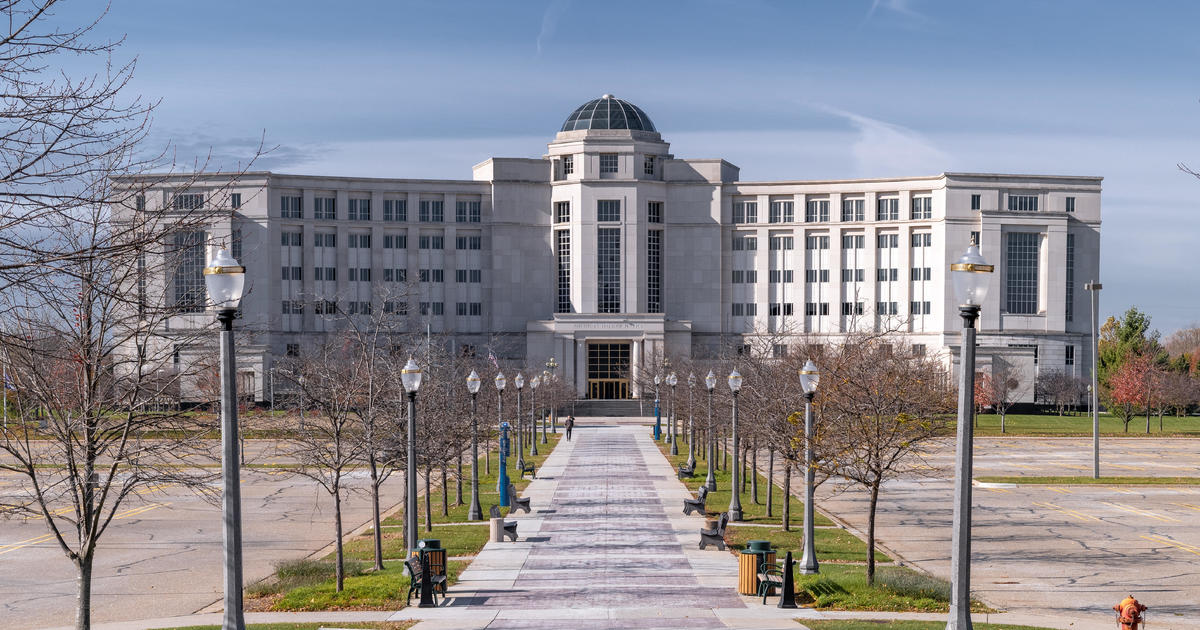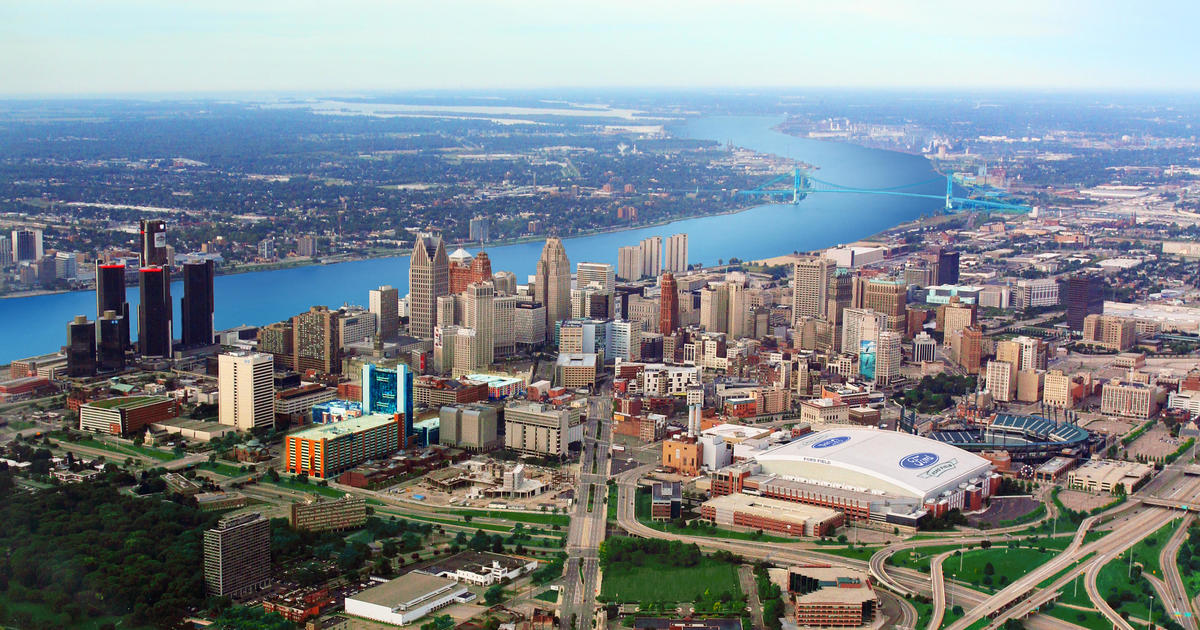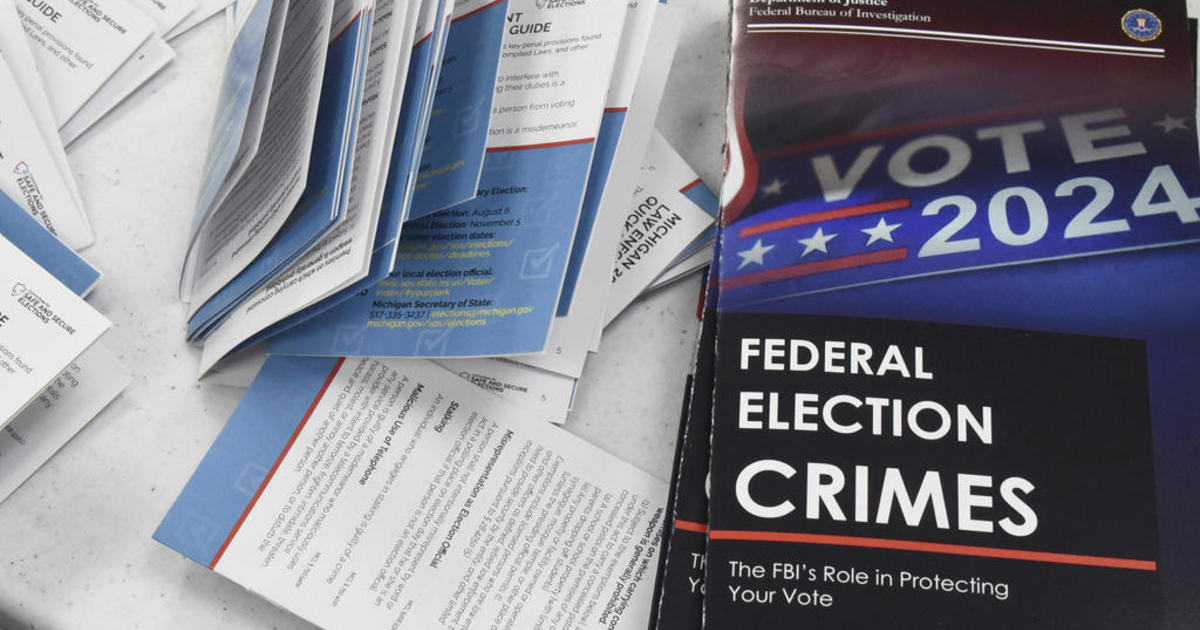Dozens Protest 'Slave Wages' For Fast-Food Workers In Metro Detroit
DETROIT (WWJ/AP) - Dozens of demonstrators lined up outside an east side Detroit McDonald's restaurant in an effort to protest what one man called "slave wages" for fast-food workers.
The protest was just one of many taking place nationwide to raise pay in low-wage sectors to $15 an hour. Workers on Thursday are expected to walk off their jobs in Michigan and across the nation, including McDonald's, Burger King, Pizza Hut, Subway, Wendy's, Checkers and KFC. Clergy, elected officials and community supporters are also expected to join workers on the strike lines.
Employees at the McDonald's restaurant on Connor Street and Mack Avenue said their plan was to "shut the restaurant down" with their walk-off. It didn't quite work, as cars continued to pass through the drive-up windows while workers outside chanted "Raise the minimum wage" and "Hey, hey, ho, ho, $7.40 has got to go."
A worker who did not want to be identified said the minimum hourly wage might be enough for some, but she knows those with families are struggling to make ends meet.
"People with kids know it's not enough and people with responsibilities that have bills to pay, they know it's not enough. But it's enough for me because it's just me," she told WWJ's Ron Dewey. "So, I'm still walking out with them."
Maintenance worker Julius Waters said his $7.40-an-hour wage pays for his transportation to and from work but not much else. "I need to be able to take care of my child," he added, referring to his 6-year-old son.
Ricardo Jackson said he's been struggling the whole six years he's worked in the fast-food industry. "It's deplorable for people to work wages, slave wages, in the 21st century evolutionary country," he said.
Another man who identified himself only as Thomas said fast-food jobs aren't just for kids anymore. He said more and more adults are looking at the jobs as a means to provide for their entire family, and that's something the corporations should consider.
"I just heard a report that 25 percent of those who are fast-food workers have families and are the heads of households. That's a fallacy. I think they need to look at the numbers again, with the gulf between rich and poor, that it's not just an entry-level position anymore," he said.
Protests in August were held in about 60 cities, including Detroit. Some targeted restaurants, like the McDonald's on 8 Mile and Lahser roads, were temporarily unable to do business because they had too few employees, and others seemingly operated normally.
The move comes amid calls from the White House, some members of Congress and economists to hike the federal minimum wage, which was last raised in 2009. But most proposals seek a far more modest increase than the ones workers are asking for, with President Barack Obama wanting to boost it to $9 an hour.
The push has brought considerable media attention to a staple of the fast-food industry – the so-called "McJobs" that are known for their low pay and limited prospects. But the workers taking part in the strikes still represent a tiny fraction of the broader industry.
As it stands, fast-food workers say they can't live on what they're paid.
For the restaurants it does own, McDonald's said in a statement that pay starts at minimum wage but the range goes higher, depending on the employee's position and experience level. It said that raising entry-level wages would mean higher overall costs, which could result in higher prices on menus.
"That would potentially have a negative impact on employment and business growth in our restaurants, as well as value for our customers," the company said in a statement.
The National Restaurant Association says the low wages reflect the fact that most fast-food workers tend to be younger and have little work experience. Scott DeFife, a spokesman for the group, says that doubling wages would hurt job creation, noting that fast-food chains are already facing higher costs for ingredients, as well as new regulations that will require them to pay more in health care costs.
TM and © Copyright 2013 CBS Radio Inc. and its relevant subsidiaries. CBS RADIO and EYE Logo TM and Copyright 2013 CBS Broadcasting Inc. Used under license. All Rights Reserved. This material may not be published, broadcast, rewritten, or redistributed. The Associated Press contributed to this report.



